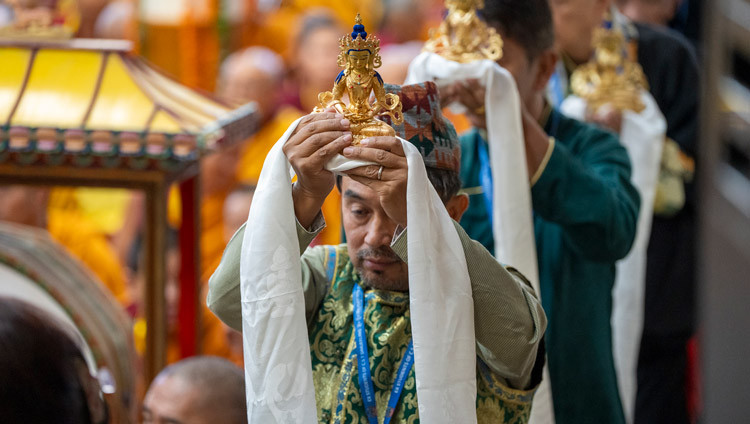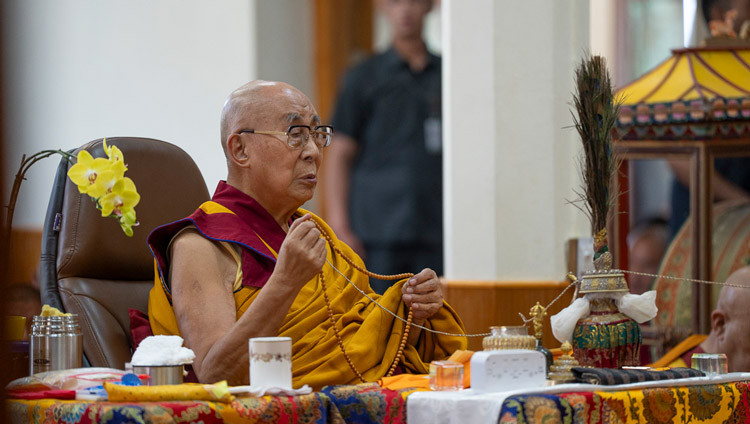dna exclusive: Politically, India could have done more, says Tibetan PM in-exile Lobsang Sangay
Manan Kumar, Wednesday, May 22, 2013, 9:00 IST | Agency: DNA
But solving the Tibet issue will provide the buffer zone for peaceful borders. This will further lessen the suspicion on the Chinese government. Tibet will contribute to the peace in the region.
Fresh from a visit to the USA and Europe, Tibetan prime minister (in exile) Lobsang Sangay, in an exclusive interview to dna, speaks candidly on how changes in India and China’s stances on the Tibet issue can contribute to peace in the region.
Edited excerpts –
How significant is Chinese premier’s visit to India?
Having chosen India as the first country to visit after taking over as the prime minister, Li Keqiang could have initiated substantive dialogue on resolving the Tibet issue. India and China have the largest populations and we wish good relations between both the countries. But solving the Tibet issue will provide the buffer zone for peaceful borders. This will further lessen the suspicion on the Chinese government. Tibet will contribute to the peace in the region.
Do you genuinely think Tibet can contribute to peace?
Yes. If Tibetans are given autonomy. I think we missed that opportunity this time.
The joint statement between China and India does not mention India’s affirmation on a unified China. What do you make of it?
It is for the Indian government to decide. We welcome the fact that Tibet was discussed. We wish that there were substantive discussions where Tibet as the one of the core issues. India’s security is linked to the issue of Tibet.
Do you think that the government of India has made genuine efforts in the last decade on the issue of Tibet?
Compared to other countries, India has done the most for Tibetans, for which we are grateful. But politically, we wish that India did more.
What are steps that the Indian government can adopt in the Tibet issue?
India needs to make Tibet the core issue with the Chinese government and clearly explain that India’s security is linked to the situation in Tibet. There was never a border between India and China, but there was always a border between Tibet and India. And that solving the issue of Tibet will contribute to peace in the region.
With China steady growth as a superpower, can India raise this issue in such a straight manner?
Definitely. India is one of the largest economies in the region and has the moral authority. The Indian model is not only important for Asia, but also for the world. India’s rich heritage, culture, the Gandhian notion of non-violence – is respected in the international community.
What are your impressions about the new Chinese leadership?
I think it is too early to say anything. But it looks like they are continuing with the same hard-line policies in Tibet.
What makes you think so?
In the 17th party congress, at least one minority was in the politbureau. Now in the 18th party Congress, there is no representation of minorities. In the central committee, that has more than 200 members, there used to be 16 minority members. That has now reduced to 10. The representation of Tibetans is marginal with only one or at the most two. Then 117 self-immolations have taken place and they are prosecuting self-immolators.
The current crop of Chinese leadership is young. They may stay for next 20-30 years. How you think things can progress?
For how long will the ruling party stay, we don’t know. But what we seek is genuine autonomy within the PRC, that is within the framework of the Chinese constitution. Hopefully, the Chinese leadership will realise the futility of repressing the Tibet. Internationally, it raises questions on China’s rise.
There is worry in some quarters about China’s increasing investment in India’s neighbouring countries?
China has invested in Pakistan, Sri Lanka, Myanmar, and in Nepal. The land route China has helped construct, stretches from all the way from Lhasa to Nepal. The railway line they are planning to bring from Lhasa to the Sikkim border via Shigatse and then Nepal and Bangladesh. We need to see what the Indian government will do in this regards.
Do you think India needs to assert a little more on the border?
Yes, India needs to improve infrastructure along the border to feel secure.
China was quoted saying that Tibetans based in India are provoking self-immolations?
This allegation is baseless and there is no shred of evidence, whatsoever. We invite them to send a delegation to Dharamsala and check all our records. As a matter of fact we are discouraging self-immolation in Tibet.
Then why are Tibetans resorting to self-immolation?
This is because of the continuing occupation of Tibet – its repression and the economic marginalisation of Tibetans. The environmental degradation and forced cultural assimilation brought about by the Chinese are moving in Tibet by taking away their jobs are reasons enough to provoke.
Tell us something about your recent visit to the US?
I met 21 senators of the Congress and wrote a letter to the secretary of state John Kerry barely a month before he went to China. To take stock of the prevailing situation in Tibet, they asked him to promote dialogue China and Tibet.
They also acknowledged that the Dalai Lama has devolved his political authority and that the Tibetan administration is a democratic set-up now.




